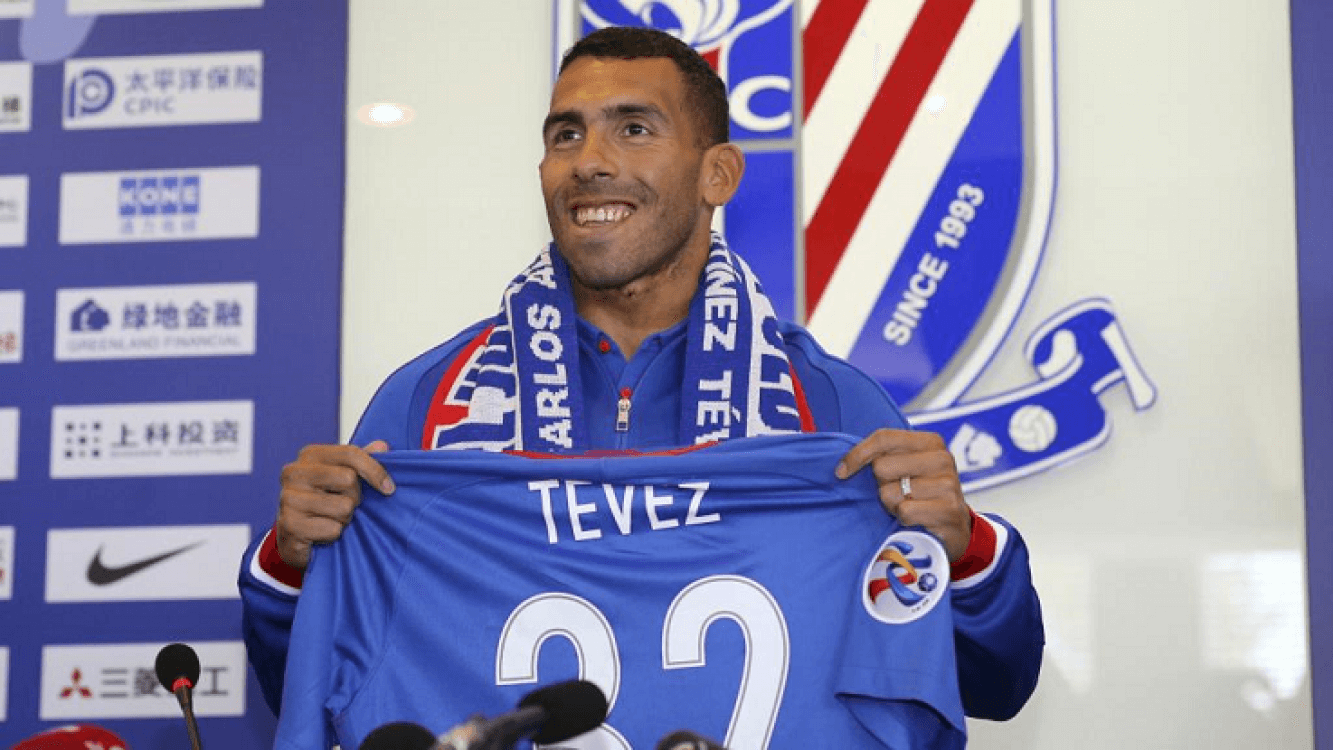
An End To Big Signings In The Chinese Super League?
New tax rules governing overseas players appear to have dented Chinese clubs' buying power
The Chinese Super League has gained worldwide attention, with their clubs' collective display of financial might seemingly enabling them to attract young, overseas superstar players at will.
Oscar arrived from Chelsea for £60m, with the likes of Hulk, Alex Teixeira, Axel Witsel and Jackson Martinez also making the switch to China.
This was no retirement league with ageing players aiming for one last big pay day - these were players in their prime, who opted to leave top-flight European football.
Having lost Oscar to Shanghai SIPG in January 2017, Chelsea manager Antonio Conte claimed the CSL was a "danger for all".
However, new rules governing overseas players appear to have dented the clubs' buying power in their current transfer window which, unlike in Europe, closes at the end of February.
The imposition of a 100% transfer tax for overseas players - which the Chinese FA proposes to use to help the nation develop football at youth level - has led to a slowing down of clubs' transfer activities.
Diego Costa's mooted £64m move to Tianjin Quanjian was scuppered when the fee effectively doubled to £128m overnight because of the new tax.
So, with this new restriction in place, has the Chinese Super League's bubble burst?
Having been able to flex their financial power unhindered in the past, CSL clubs are not happy with the new rule. Some are keen to explore loopholes to enable them to sign top overseas players who buy out their contracts and then arrive for free.
Arsenal manager Arsene Wenger's view is reflective of a system which appears to be taking a breather.
"They have slowed down in China and people haven't noticed. Many people still think 'OK we will pay these prices because if we don't, China will buy the players for a maximum price'," he said.
"That is gone. We have to be looking at what has happened in the past 10 months in China, and accept that they have slowed down. They are much more cautious about spending big money for European players."
Newcastle United manager Rafael Benitez notes that Chinese clubs, hindered by the tax, "have fewer places for foreign players".
And while he was reluctant to see Brazil international Oscar leave Stamford Bridge, Conte now appears to have softened his stance.
"If an offer arrives for a player who wants to go, who is not in our plan, he can go," said the Italian.
The new CSL season starts in March, with reigning champions Guangzhou Evergrande Taobao looking to extend their record haul of titles to eight.
But it was perhaps Shanghai Shenhua who made many outside China take note of the CSL for the first time, when Chelsea pair Nicolas Anelka and Didier Drogba ended their time in west London to join the club. Anelka signed in January 2012 for a reported annual salary of 12m euros (£10.6m) and six months later Drogba signed up for an eye-watering £200,000 a week.
One of the reasons the league was set up was to help improve the level of football in China, a nation that has qualified for only one World Cup - in 2002 - but is desperate to return to the global stage.
Failure to qualify for Russia 2018 was not a good start, but with the continued inclusion of superstar overseas players, the hope is that the level will improve and China will be able to qualify for the 2022 World Cup in Qatar.
There is an even bolder ambition of winning the World Cup in 2050 - and that ambition comes right from the very top.
Chinese President Xi Jinping wants his nation to be ready and able to compete against the likes of Germany, France and Brazil.
To do that, he wants to have at least 20,000 training academies and 70,000 pitches by 2020, with 50 million children and adults playing the game in two years' time, while also ensuring that pitches are readily available in the country.







Comments